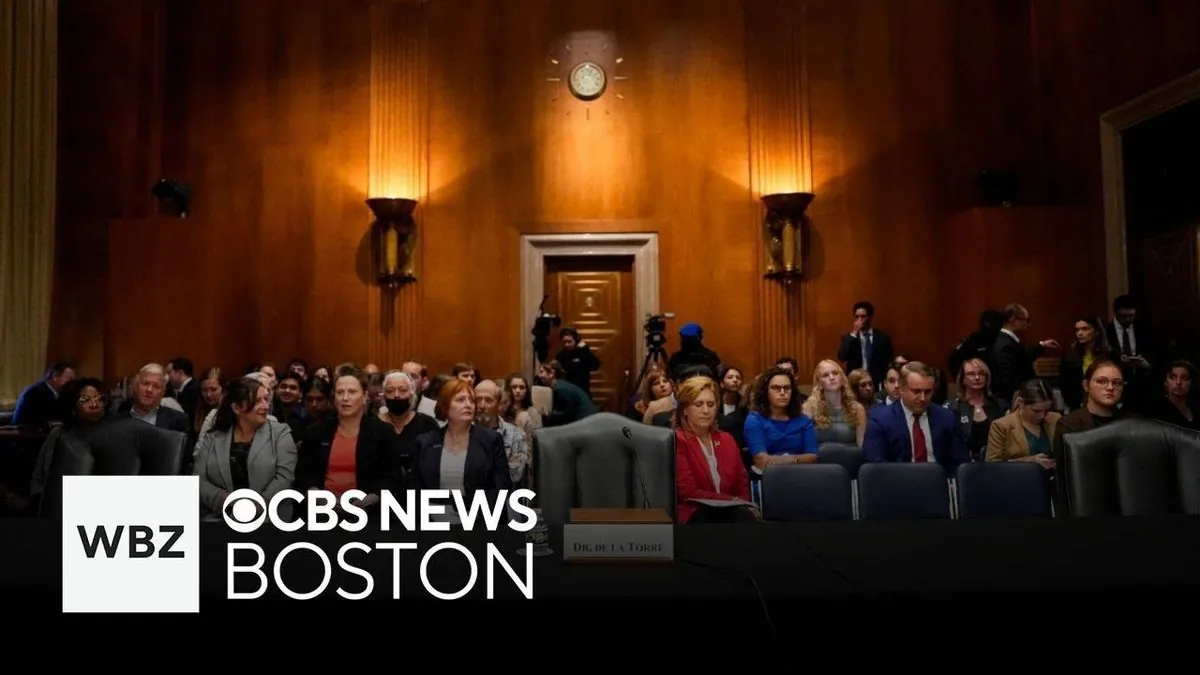Ex-Steward Health CEO Sues Senate Over Contempt Vote in Bankruptcy Probe
Former Steward Health Care CEO Ralph de la Torre files lawsuit against Senate committee, claiming violation of Fifth Amendment rights. Legal battle unfolds amid company's bankruptcy and leadership change.

In a significant development in the healthcare industry, Ralph de la Torre, the former chief executive of Steward Health Care, has initiated legal action against a U.S. Senate committee. This move comes in response to the committee's decision to hold him in contempt for declining to testify about the financial challenges faced by the bankrupt hospital network.
The lawsuit, filed on September 30, 2024, in a Washington, D.C. federal court, alleges that the Senate Committee on Health, Education, Labor and Pensions infringed upon de la Torre's Fifth Amendment rights. The legal action claims that the committee threatened de la Torre with "criminal retribution" and "public humiliation" for asserting his constitutional right against self-incrimination.
Steward Health Care, once the largest privately owned hospital network in the United States, filed for bankruptcy in May 2024, seeking to divest all 31 of its hospitals and address a substantial $9 billion debt. This bankruptcy filing ranks among the largest in recent healthcare history, highlighting the financial pressures facing many U.S. hospitals.
The Senate committee convened a hearing on September 12, 2024, to investigate cost-cutting decisions at Steward hospitals. Despite being subpoenaed, de la Torre declined to testify, citing potential violations of his rights and concerns about impeding Steward's bankruptcy reorganization. In his absence, the committee heard testimony from nurses and local officials who alleged that Steward's management practices had negatively impacted patient care.

On September 25, 2024, the full Senate voted to hold de la Torre in contempt, marking the first such criminal contempt referral to the U.S. Department of Justice since 1971. This rare move underscores the seriousness with which Congress is approaching the investigation into Steward Health Care's operations and financial management.
"The contempt vote was an unconstitutional attempt to coerce testimony. We seek a court ruling declaring that Dr. de la Torre cannot be punished for asserting his Fifth Amendment rights or be compelled to comply with the subpoena."
The legal battle unfolds against the backdrop of Steward Health Care's complex history. Founded in 2010 through the acquisition of six Catholic hospitals in Boston, the company expanded rapidly under de la Torre's leadership, acquiring hospitals in multiple states. However, this growth was accompanied by financial difficulties and controversies in several locations, including Pennsylvania and Texas.
Steward's business model, which focused on acquiring struggling hospitals with the aim of financial turnaround, has been a subject of debate in healthcare policy circles. The company's reliance on private equity backing, particularly from Cerberus Capital Management, has drawn scrutiny amid growing concerns about the role of private equity in healthcare.
Amidst these developments, Steward Health Care announced on September 30, 2024, that de la Torre would be stepping down as CEO effective October 1, 2024. This leadership change, described as amicable, adds another layer of complexity to the ongoing situation.
The legal challenge posed by de la Torre's lawsuit raises important questions about the balance between congressional oversight and individual constitutional rights. As the case progresses, it may have significant implications for future healthcare policy discussions and the relationship between private healthcare entities and government oversight.
As the healthcare industry continues to grapple with financial challenges and evolving regulatory landscapes, the outcome of this legal battle and Steward Health Care's bankruptcy proceedings will likely be closely watched by industry observers, policymakers, and healthcare professionals alike.


































